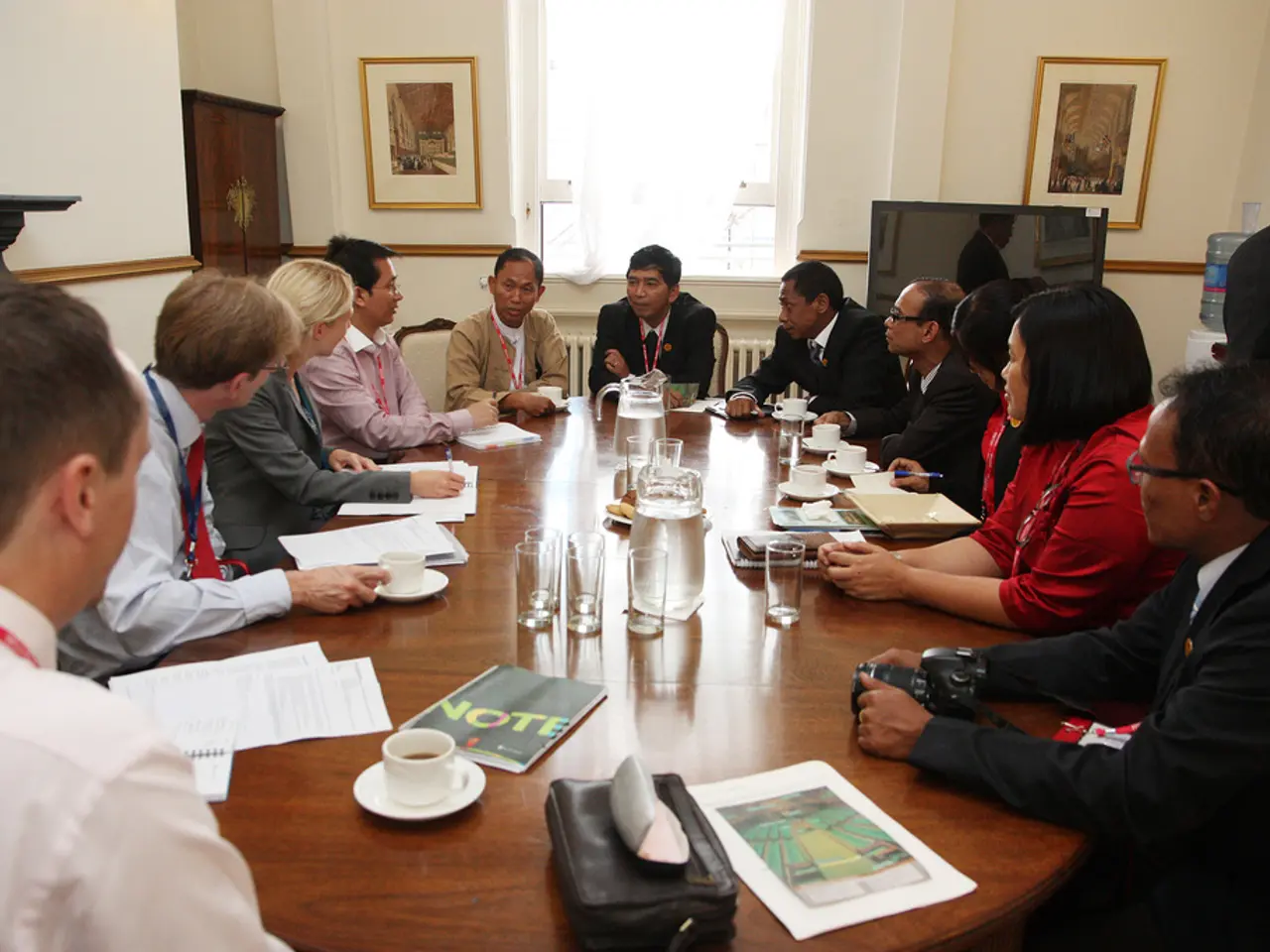Leadership Training Program Syllabus: Components Covered
In the dynamic world of business, effective leadership is more crucial than ever. To address this need, a transformative approach to leadership development is being embraced, one that emphasizes real-world scenarios and experiential learning opportunities for practical application of leadership skills.
This innovative curriculum equips leaders with a diverse array of essential components, designed to prepare them for success in complex organizational environments. These components include strategic thinking and problem-solving, emotional intelligence, communication and influence, performance and team leadership, crisis and change management, decision-making, performance management, agility and innovation, customized and practical learning, and compliance training.
Strategic thinking and problem-solving, for instance, teach frameworks for strategic analysis, decision-making, and alignment with long-term organizational goals. This is often achieved through case studies and simulations to tackle complex challenges. Emotional intelligence, another crucial component, develops self-awareness, empathy, emotion management, and interpersonal skills, facilitating conflict resolution, motivation, and team cohesion.
Communication and influence skills are enhanced, enabling leaders to articulate vision clearly, negotiate effectively, and inspire teams, even in the face of information overload. Performance and team leadership focuses on leadership styles, motivation techniques, delegation skills, fostering collaboration, and cultivating high-performance cultures.
Crisis and change management builds adaptability and decisiveness, preparing leaders to handle uncertainty during organizational changes. Decision-making offers clear processes and techniques for framing problems, gathering and analysing information, and making informed decisions. Performance management trains leaders on how to set goals, conduct progress reviews, give constructive feedback, and manage performance cycles to improve individual and team outcomes.
Agility and innovation prepare leaders to handle volatility, embrace digital competence, and foster innovation in a fast-changing business landscape. Customized and practical learning tailors content to organizational needs and includes real-world applications like role-playing, simulations, and practice exercises for skill reinforcement.
The shift towards continuous learning expeditions combines real-world applications with classroom experiences, ensuring a comprehensive learning experience. Forming strategic partnerships with local institutions addresses specific skill gaps within communities and industries. Incorporating diverse formats like live sessions, on-demand videos, and self-paced modules caters to various learning preferences.
Real-world case studies offer practical examples of successful strategies and common challenges organizations face. Integrating feedback and continuous improvement ensures the leadership development program remains effective and relevant. Regular feedback from assessments allows for continuous adjustment of the leadership development curriculum.
Regularly updating the curriculum is necessary to reflect current leadership trends. Emotional intelligence plays a crucial role in effective leadership, influencing team performance and employee engagement. Practical application examples, such as analyzing business challenges through case studies, engaging in simulations, and partnering with local organizations for live project experiences, improve knowledge retention by up to 75%.
The leadership development program curriculum focuses on core competencies such as self-awareness, communication, and emotional intelligence. Addressing specific leadership challenges requires a customized approach that identifies skill gaps at individual, team, and organizational levels. Mentorship opportunities provide personalized guidance and accelerate growth for participants.
Customizing assessments to align with an institution's specific context and strategic goals is crucial for personalized development. Mentorship opportunities help build valuable relationships with experienced professionals, providing personalized guidance and accelerating growth. Immersive learning opportunities like simulations and role-playing enhance confidence and readiness for real-life situations.
Tailoring content for first-time managers and experienced executives ensures relevance and engagement. Continuous feedback integration ensures the curriculum remains relevant and adapts to evolving leadership challenges. This comprehensive approach to leadership development equips future leaders with the skills and mindset necessary to succeed in today's dynamic organizational environments.
In the context of the innovative leadership development curriculum, emotional intelligence (ieo) is emphasized as a crucial component, as it develops self-awareness, empathy, emotion management, and interpersonal skills, facilitating conflict resolution, motivation, and team cohesion in finance, business, education-and-self-development, and other complex organizational environments. Moreover, practical application examples, including analyzed business challenges through case studies and engaging in simulations, as well as partnerships with local organizations for live project experiences, are integrated to improve knowledge retention by up to 75%.




